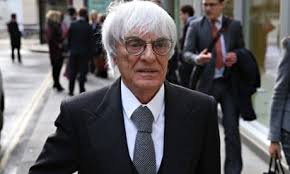
Introduction
Bernie Ecclestone, the former chief executive of the Formula One Group, has played a pivotal role in transforming Formula 1 into a global phenomenon. His influence extends beyond racing, impacting business practices, television rights, and the overall commercialisation of the sport. Understanding his contributions is essential for anyone interested in the evolution of motor racing and its standing in contemporary sports.
Early Life and Career
Born on October 28, 1930, in Suffolk, England, Bernie Ecclestone’s foray into the world of motorsport began in the late 1940s when he became involved in racing through his own motorcycle shop. By 1958, he was promoting races and began to establish the connections that would later serve him well in Formula 1. His career was marked by acumen as a businessman and negotiator, setting the stage for the success he would later achieve in the high-stakes world of motorsport.
The Formula 1 Revolution
In 1971, Ecclestone became the owner of the Brabham Formula 1 team, which led to his deeper involvement in the sport’s management. By the 1980s, he had negotiated a ground-breaking commercial rights deal that shifted the financial landscape of the sport. He was able to sell television rights to broadcasters around the globe, ensuring that Formula 1 became accessible to millions of fans worldwide. This move not only increased revenue for the teams but also helped popularise the sport across diverse markets.
Under Ecclestone’s leadership, Formula 1 introduced technological advancements and a sophisticated advertising strategy that magnified its appeal. He was instrumental in modernising the sport, including the introduction of key changes in regulations to enhance safety and competitiveness, which are still upheld today.
Recent Developments
Despite stepping down from his role in 2017, Ecclestone remains a significant figure within Formula 1. His insights and opinions continue to shape discussions surrounding the future of the sport, especially with ongoing debates about inclusivity and sustainability. Recently, he faced criticism for his comments regarding diversity issues in motorsport, reflecting the ongoing tension between traditional views and the modern approach to inclusivity.
Conclusion
Bernie Ecclestone’s legacy is indelibly etched in the annals of Formula 1 history. His ability to merge sport with business has resulted in a product that is not only thrilling to watch but also a lucrative global enterprise. As the sport continues to evolve with new ownership and increasing emphasis on sustainability and diversity, Ecclestone’s earlier innovations provide a contrast to the current direction. Understanding his impact offers insights into the complexities of managing a sport that balances tradition with the demands of modern audiences.
You may also like

Lando Norris: The Rising Star of Formula 1

The Thrilling World of the F1 Grand Prix
